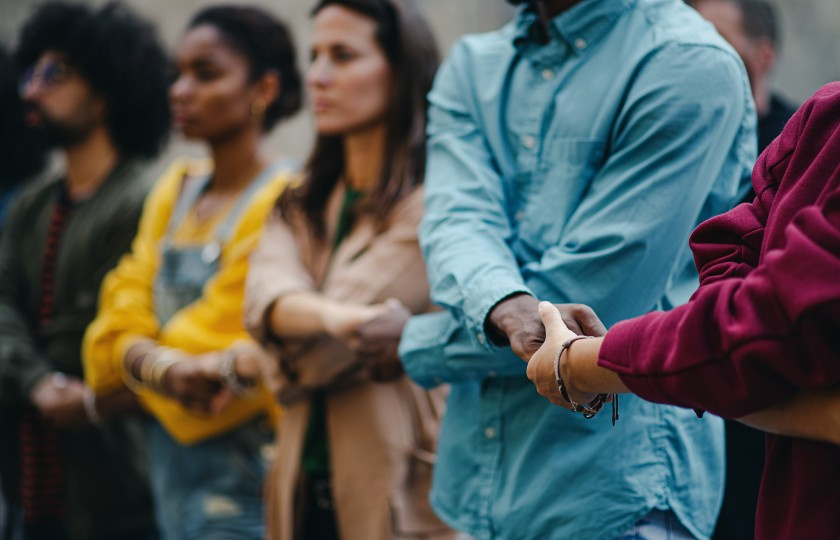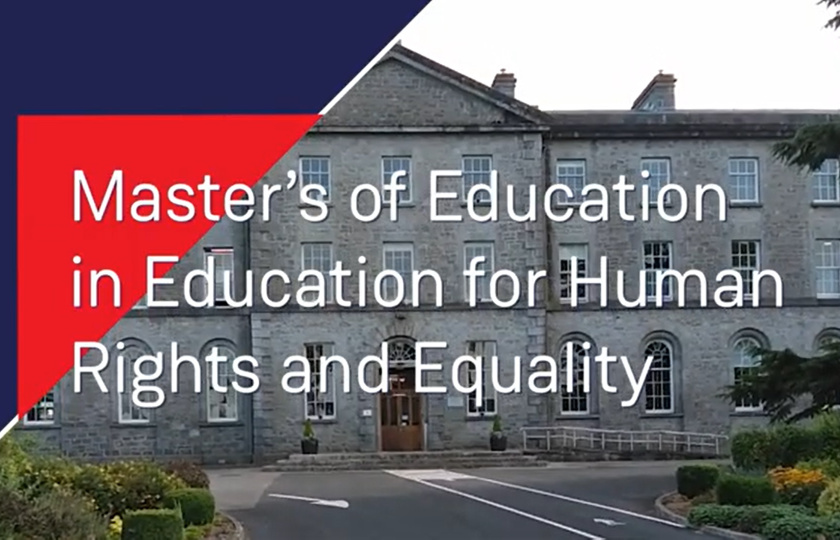
Mary Immaculate College (MIC) is delighted to announce the launch of a new Master’s of Education in Education for Human Rights and Equality for student intake in September 2024. This innovative and timely programme, offered on a fully online basis over two years by MIC Thurles, aims to address the challenges to human rights and equality arising from globalization, increasing societal diversity, and cultural changes. While primarily aimed at educators, applications are welcome from all those nationally, and internationally, who have an interest in promoting and protecting the dignity and worth of all individuals.
According to the Programme Coordinator, Dr Catherine Stapleton: “We are delighted to launch the Master’s of Education in Education for Human Rights and Equality at MIC Thurles. The programme recognises the fundamental role education must play in advancing social justice, human rights and equality world-wide. We welcome applications from all those who have an interest in the area and particularly from those working in the field of education. For those working in education the programme is designed to develop participants’ knowledge and critical understanding of human rights and equality in the field of education to enable them in their professional capacity to integrate knowledge, handle complexity and formulate judgements to promote the upholding of human rights and equality. We welcome participants worldwide to explore human rights and engage in discussion, peer learning, research and reflexive practice in a stimulating, challenging and safe environment.”
Among the programme learning outcomes will be the ability to understand and evaluate key philosophies and legislation underpinning human rights and equality; a critical understanding of the ethical, moral, and social issues related to the grounds of discrimination namely gender, race, religion, age, disability, sexual orientation, membership of the Traveller/minority community, marital, family and social status; and the acquisition of skills, tools and techniques to lead change and transformation in educational settings.

According to Dr Tayo Paul Adenusi, Assistant Professor in Education: “On successful completion of the programme, it is expected that students will also be able to critically analyse key issues that impact on the achievement of human rights and equality at a personal, organisational, local and global level in the field of education.”
Molly Daly, Assistant Professor in Education adds: “Graduates of the programme will demonstrate a critical understanding of the weight of history on human experience and that memories survive which impact on current understanding and attitudes in both positive and challenging ways. Graduates will also be able to apply professional skills of communication and collaboration in a reflexive manner to affirm the uniqueness of each persons’ identity.”
The programme will use the flipped classroom model and incorporate the principles of Universal Design for Learning (UDL). The flipped classroom approach involves sharing learning material online beforehand and utilising online classroom time for interactive activities and discussions with peers and lecturers to enhance understanding. The principles of UDL are also integral to this programme. Students will experience multiple modes of representation and will be provided with opportunities for multiple modes of action, engagement, and expression. The delivery prioritises active learning, engagement and flexibility. The programme will draw from international and national practitioners to offer a unique learning opportunity and will be coordinated and taught by Dr Catherine Stapleton and colleagues at MIC, many of whom have international educational experience.
Dr Rebecca Saunders, Lecturer in Education adds: “Programme assessment is flexible and varied involving submission of written assignments, groupwork, online engagement and presentations. All is done in the knowledge of participants having busy lives and, where possible, flexibility will form part of that assessment to play to people’s strengths and work context. Through the power of education, graduates will have the knowledge and skills to promote human rights and equality, creating a more compassionate and just world for all. Career opportunities open to graduates include education development and leadership roles and human rights and equality promotional roles within NGO’s.”



